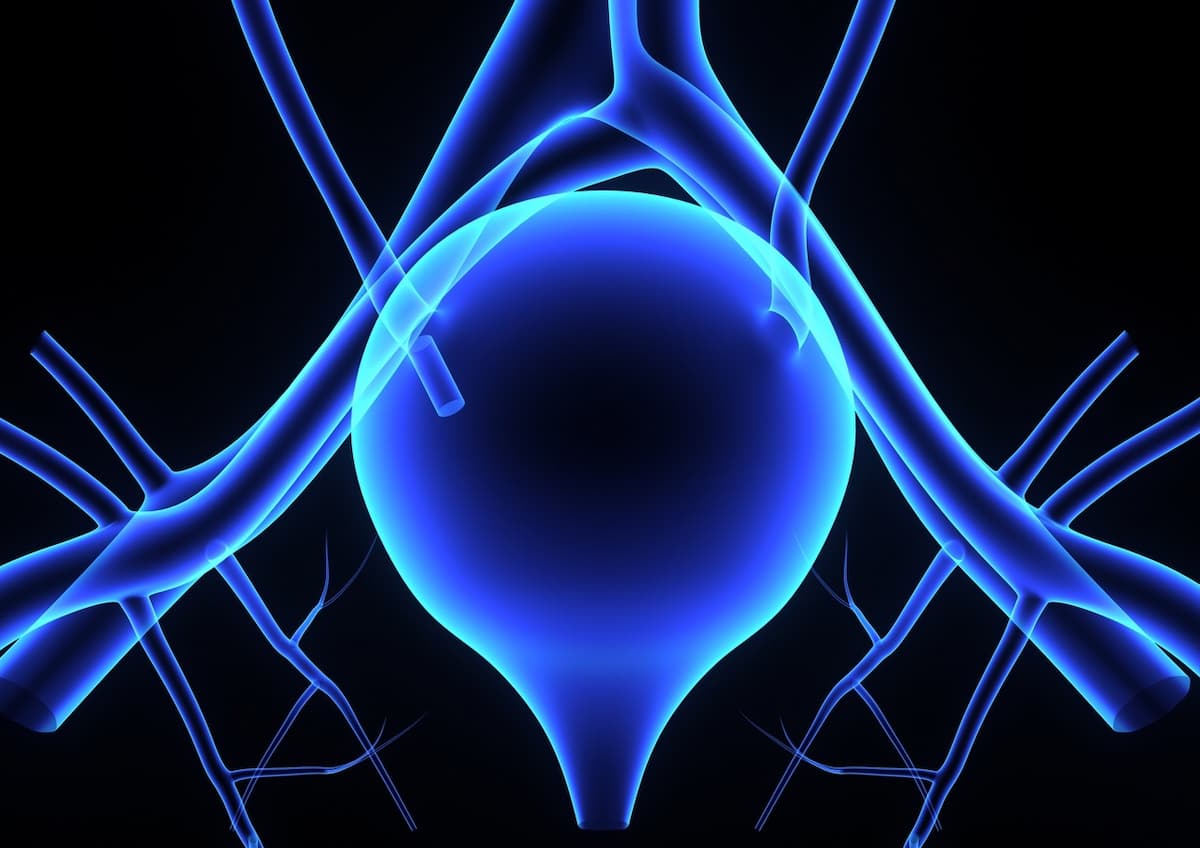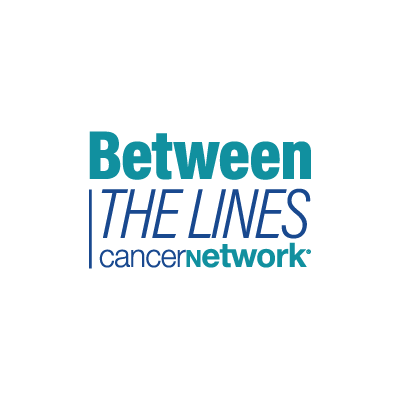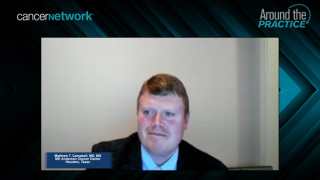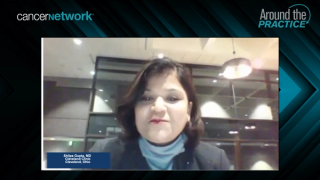
Bladder Cancer
Latest News

Latest Videos

More News

The JAVELIN Bladder 100 trial demonstrated that avelumab plus best supportive care prolonged overall survival vs best supportive care alone for patients with advanced urothelial carcinoma.
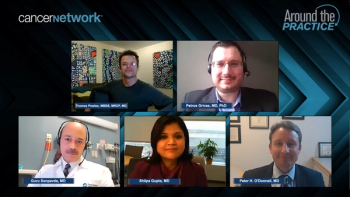
Guru Sonpavde, MD, introduces emerging antibody-drug conjugates for treating metastatic UC, and reviews recent ASCO GU 2022 data on these regimens.

Petros Grivas, MD, PhD, transitions the panel discussion to focus on clinical trial data on combination immunotherapy versus platinum chemotherapy regimens that were recently presented at ASCO GU 2022.

Infigratinib Appears Active, Tolerable in Upper Tract Urothelial Carcinoma
Patients with upper tract urothelial carcinoma may benefit from treatment with oral FGFR1-3 inhibitor infigratinib.

Neoadjuvant atezolizumab as a treatment for muscle-invasive urothelial cancer of the bladder yielded a high disease-free survival.
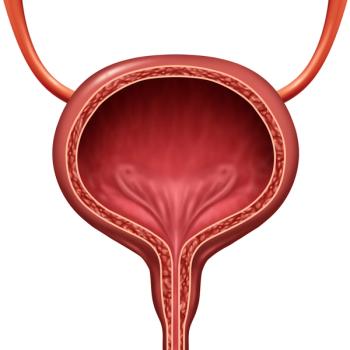
Awareness of smoking as a risk factor for bladder cancer is lower compared with other smoking-related conditions, highlighting a need for further education in urology.
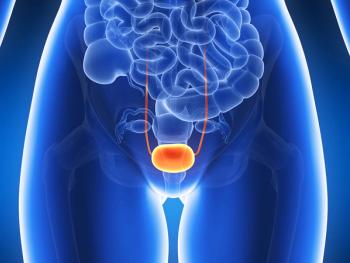
Patients with untreated unresectable or metastatic urothelial carcinoma and PD-L1 expression of 1% or more who received treatment with nivolumab and ipilimumab in the first-line setting did not experience an improved overall survival vs those getting standard-of-care chemotherapy, according to a final analysis of a phase 3 trial.

The panel summarizes unmet needs in frontline maintenance therapy for UC and comments on ongoing trials for novel treatment regimens.

Petros Grivas, MD, PhD, revisits the patient profile and invites panel members to share recommended treatment options for patients with or without FGFR mutations, who progress after chemotherapy and maintenance avelumab.

Experts comment on the typical urothelial cancer maintenance therapy duration in their practice, and situations in which they might consider interrupting treatment while maintaining patient response.

Petros Grivas, MD, PhD, shares a clinical scenario of a cisplatin-ineligible patient with high PD-L1 expression and lymph node metastases, and experts weigh in on recommended treatment options.

Panel members share insights into strategies and barriers to maintenance therapy for patients with bladder cancer.

Thomas Powles, MBBS, MRCP, MD, comments on patient-reported outcome data and quality of life data in patients receiving maintenance therapy for metastatic urothelial cancer.
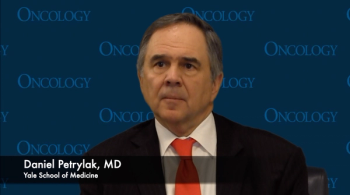
At the 15th Annual Interdisciplinary Prostate Cancer Congress® and Other Genitourinary Malignancies, Daniel P. Petrylak, MD, spoke about ongoing trials may hold promise for the treatment of patients with bladder cancer.

Thomas Powles, MBBS, MRCP, MD, discusses recent data from the JAVELIN Bladder 100 trial on maintenance avelumab therapy plus best supportive care versus BSC alone.

Experts discuss the role of biomarkers in treatment selection for patients with metastatic UC.

Findings from a preplanned analysis assessing 2 clinical trials of bempegaldesleukin plus nivolumab in renal cell carcinoma and bladder cancer led to a decision to end the combination’s global clinical development program and discontinue all other ongoing clinical trials.

European patients with locally advanced or metastatic urothelial cancer can now receive treatment with enfortumab vedotin following treatment with a platinum-containing regimen and a PD-(L)1 inhibitor.

Petros Grivas, MD, PhD, introduces a patient profile of a woman with metastatic UC and invites panel members to comment on how they might approach initial treatment and management of the patient.

Petros Grivas, MD, PhD, Shilpa Gupta, MD, Peter H. O’Donnell, MD, Thomas Powles, MBBS, MRCP, MD, and Guru Sonpavde, MD, summarize recent treatment advances for patients with urothelial cancer (UC).

The addition of an immune checkpoint inhibitor to CG0070 induced a complete response rate of 88.9% among 18 patients in the phase 2 CORE1 trial.
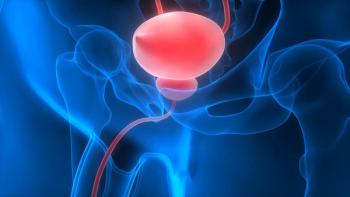
At the recent 15th Annual Interdisciplinary Prostate Cancer Congress® and Other Genitourinary Malignancies, Jean Hoffman-Censits, MD, reviews advances in the use of systemic therapy to aid surgical management of bladder cancer.

At the 15th Annual Interdisciplinary Prostate Cancer Congress® and Other Genitourinary Malignancies, Daniel P. Petrylak, MD, spoke about how immunotherapy has influenced treatment for patients with bladder cancer.

Jun Gong, MD, spoke with CancerNetwork® about the latest research from the journal ONCOLOGY® on elderly patients with muscle-invasive bladder cancer.
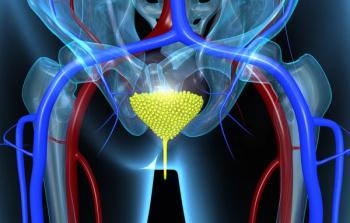
Daniel P. Petrylak, MD, reviews the current systemic therapy treatment paradigm in metastatic urothelial carcinoma.


